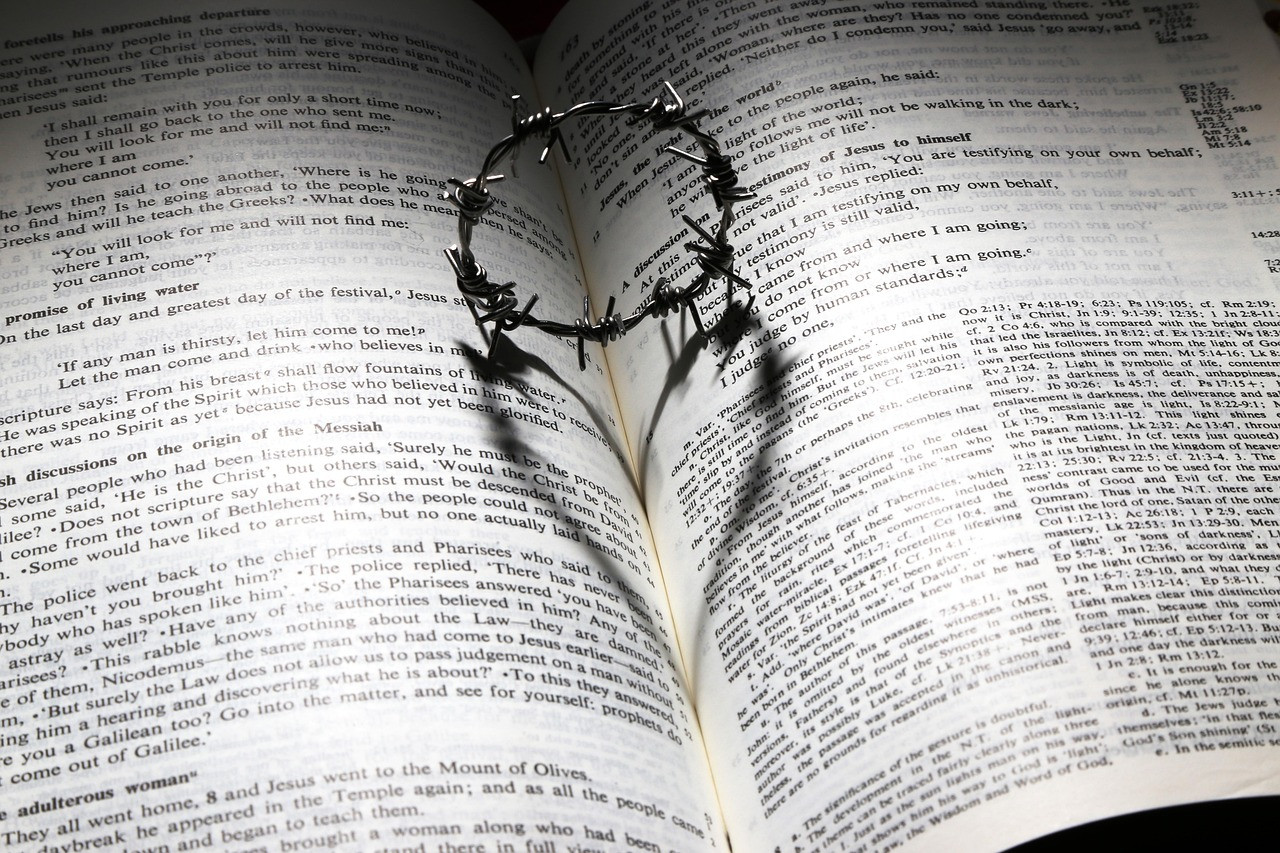Today we're talking about the trauma recovery journey. The trauma recovery journey and how you can actually think more positively even when your thinker is not very clear. So, remember that trauma is a wound. Trauma is a painful past learning experience. It means that something happened that was not optimal, and it impacted you beyond your ability to have the resources that you needed to take care of it. When we are recovering from that, we miss out on knowing that we survived because our system gets so focused on making sure that never happens again.
Are Your Coping Skills Working?
That scary thing that felt like we wouldn't survive, that it puts up amazing scanners under the scenes that say that will never happen again. And then we come up with all kinds of coping skills, whether helpful or not helpful, to prevent the very thing that hurt us. And then those coping skills end up hurting us, so they don't work. They worked for a time, or they worked for a developmental stage or when we were kids, we thought they worked, but then as adults we run into things where they don't work and then we're kind of left wondering what in the world to do next?
You Already Survived!
Today, I'm going to help teach you how to think as you are recovering from trauma. Maybe you've been in therapy for a while and you're like, but when I hit this pain point again, I thought I had already worked through it. I thought it had already healed. I don't understand why I'm spinning my wheels again. And I want to tell you, you're not. And when you think, why am I not able to get past this? I still have to keep working and trying to get past this, I want to tell you that you are. So, you are getting past it. You are doing the work. Just because something is familiar and because it may be the way it feels, it does not mean that you're not progressing. It does not mean you haven't survived. It does not mean that hope isn't right there with you or that healing isn't completely on the horizon.
Now, I can't promise complete healing in everybody's circumstances all the time. But when you really do the work, you will then have the tools to be able to keep on the path towards healing and it will get smoother as you go. You don't need to still survive. You don't need to try harder to survive. You already have survived. Now you need to basically pick yourself up when you wobble. It's not that you're still surviving, it's that your system doesn't know it already did.
It's Like Riding a Bike
I want to give you the analogy of a bike ride, okay? If you're on a two-wheeler, you're a kid, you've learned how to ride a two-wheeler and you've crashed, and your bike is toast. I mean, you're banged up, your knees are skinned, your bike got all bent, your tires flat, everything's a mess. You don't want that to ever happen again. So, the next time you get on your bike, your new bike, you start to wobble a little bit because you remember, uh-oh, I fell last time, yet you keep going. You may have to stop and go to one side and kind of catch your balance with one leg down while you hold the bike against you. Then maybe you get back up and you try again and keep going. But every pedal, every time you push the pedal around, you are further on in the process of getting back on the bike and getting away from the experience of the accident. You survived your bike accident, and now you're on your way to a wonderful ride. If you keep thinking, I have to survive an accident, I have to survive an accident, you take away the power of the ride that you're already on in your bike. Now, does that mean you'll never wobble? No, of course not. Does that mean you'll never skin your knee again? Of course not. Does it mean though, that you're going to completely crash and lose your bike and never be okay again and break all kinds of bones? It doesn't mean that either. What happened to you in that first bike crash is over. If you have a new bike and you're pedaling, you survived it.
Now it's a matter of maybe carrying some extra tools with you. Maybe you want to wear your helmet when you ride your bike. Maybe you want to have some knee pads. If you wore ten knee pads on each leg, that would be overkill and that would cause more of a problem than it would help you. See, your coping skills can be out of proportion to what you need them to be. So, in what ways are you trying to protect yourself that are actually getting in the way now? But there's nothing wrong with maybe carrying with you some quarters to put in an air machine at a gas station so that you can pump up your tire if it gets a little low and that's what's causing the wobble. Or maybe to put a little basket on the bike that has a bottled water in there because you might get thirsty and that might help keep you hydrated while you pedal. When you have things that are helpful, you just pull out the tool that you need. Maybe carry a Band-Aid in your pocket in case you need to slap one on. If you do fall and skin your knee, it's not buying a whole new bike again and recovering from that huge crash you had. You've already done that. You're already on your new journey. You may need to have some tools in your toolkit that will help you to optimize when you wobble and fall. But it doesn't mean it's a catastrophe. Taking you back to that catastrophe that you had had that big wound trauma that put you on your guard and wanted to make you put every elbow, knee pad, helmets to the extreme on you. No. Just use caution. Be wise, look out for potholes, keep pedaling, enjoy the new journey. You're already on it.
Traumatic Memory Vs. Chronological Time
I wanted to encourage you with that because that's the difference between traumatic memory and actual chronological time you are present, you were hurt, you might still feel like you have a black and blue mark or a few of them, and you don't want them to get bumped. Again. Totally understandable. But if and when they get bumped, you can tend to them with compassion and care, or find others now who can tend to them with compassion and care. And you can process and heal because you survived that initial catastrophe. And the way I know that is because you're here now. You would not be if you were in immediate survival danger. Using your logic, maybe having some sips of coffee while you read. If you were really in fight or flight danger right now, a survival mode, you wouldn't be reading and thinking about how this applies to you. So, you have survived 100% of the things that you've been through. If you're still bruised, it's because you were wounded. And if you're still feeling those spots are tender, then tend to them. Comfort them, get them the support they need, the healing, the processing. But please don't mistake that you are no longer on the journey of the trauma. You are on the journey of recovery from that trauma. When you can acclimate to present time and space, it helps you to realize that you are no longer powerless, that you have power.
Today, I have a special request from a podcast listener, Crystal from Mississippi, so thank you, Crystal, for providing this. With the war that's going on in Israel, she was asking for my insight on how we can conceptualize being mentally and spiritually and emotionally able to handle and process times of crisis.
Survival and Prayer
Specifically, I think we need to start with what Crystal said she's already doing, which is praying. She's been in prayer for Israel and for the peace of Jerusalem. She's trusting in God and asking for Him to come into the situation and have His hand and His healing and His presence absolutely. First place you go, right? Well, maybe second, if you're in the attack, the first place you go is getting out of the attack so you can survive, so you can pray. And that's just how God made us. So, if there's time before there's something that happens that is fearful and there's time to pray, great. But if we think about what trauma does and the fight or flight response, the people who are actually on the ground there who have been affected, they may not have had time to think, okay, I'm going to pray now. Their spirits may have been praying, but they didn't have time for that conscious thought. In many cases, when crisis is imminent, survival becomes the first thing as that's what God put into our bodies. When we're alive, then guess what we can do? We can pray.
Big "T" Trauma
Survival and prayer would be the first two things. The thing about trauma, such as a crisis or war or the COVID pandemic, is that there's a lot of unknowns. There's a lot that is something we can't tell when it's over. We can't tell if something more is coming, if there's more danger, if there's more threat. So, it seems scarier because it's out of our realm of understanding because we've never been here before. It's something that we're not used to and that's a big "T" trauma. And the difference between a big "T" trauma and a little "t" trauma is not the amount of trauma that you have, but whether it is something that is a kind of big isolated, one-time kind of event like a war. I mean, even though it may go on and on, the fact that there was this attack is a big "T" trauma. It was like out of nowhere and overwhelmed everybody's system and everybody's in survival mode.
And now what do we do? Right? And as the rest of us in the world who aren't affected are listening into those who are affected by it and the news of what's going on there, we're going to have different perspectives. It's a lot different when you're in the midst of it and you're the one experiencing the crisis than it is for those a continent away. Now, that doesn't mean that we're not all traumatized, but the effects of the trauma and how to deal with it are different. So, for the people who are actually in the war zone, or the medical crisis is imminent, for when they're the ones who are in that pain point directly and the pain point is still going on, even if it's like a one-time attack, but the fallout is still there. We're not minimizing it but we're just saying like this is something that we can kind of put a finger to and say this is the problem. Like the COVID pandemic is the problem. There may have been lots of people who were hurt by it and lots of people who were affected from the ripple effects of it, but the people who were suffering with it in the midst of it, they were the ones who were surviving it in that immediate moment.
Survival First
The people in the war zones right now, for instance, are experiencing it in that immediate moment, and the best thing that you can do try to slow down your thoughts, your movements, your breaths and just gently, compassionately soothe yourself. Once you're in a safe place and able to survive, basically at that point it is hunkered down and continue surviving. Especially when the threat is still going on. It's too soon to heal from trauma when the threat is still there, the unknowns are still there, the fight or flight is still there, and you're still in survival mode. So, at that point, the best that you can do is hunker down with the basics of taking care, of trying to make sure your basic needs are met, that your loved ones' basic needs are met, and that you just at this point survive. Try to get to water. Try to take slow, deep breaths. Try to focus on something physically comforting in your present space. If there's anything like that, get to shelter if possible. If you can eat, try to have something to eat that can settle your stomach. Just go back to the basics of your physical body. There will be a time where you will know that the threat is passed, but it may not be immediate. And that's okay. It's not okay that you're going through that, and I'm so sorry that you are, but it's okay that you don't have to have it figured out.
You don't have to know your next steps. In fact, you can't, because your brain can't even fathom what has happened. It hasn't made meaning of the story because you're still in survival mode. All you need to do at this point is give yourself grace and compassion and do the next thing that you need to for your physical body to survive. We mentioned prayer as well, also being able to ground yourself in the present moment and your present location. If you are safe recognizing, okay, for this moment, I am just focusing on where I am right now, or I'm just focusing on these words, I'm saying them over and over again in prayer. If that brings you comfort or stroking a stone or something that you can just hold on to and caress it over and over, anything like that can be helpful. So survival first!
Don't Judge It or Give It a Timeframe
Then the next thing is for those who are coming out of something tragic, is to not judge it, not put a time frame on it for recovery, not put a time frame on it or a judgment on it for what it should look like or how it should be handled. There's no rulebook when things that are out of the ordinary happen. It's not like, okay, you should be past something at this point, at this mile marker of loss here. You should be over it by this month or this many days out-that's individual. To try to put pressure on yourself or anybody else for not healing or getting back to normal according to a timeline is absolutely unhelpful.
Just Be Present for Those in Trauma
It's a lot better to just be present for those if you're walking alongside people who are going through the battle, whether that's a physical bombing type of battle, an emotional battle, a relationship battle, medical battle, financial battle, whatever it is, if you're walking alongside somebody, just be present. Meet their basic needs, pray for them. Don't try to throw in anything amazing to say. You don't have to fix it or make it better. There's nothing you can do to fix it or make it better, so just take the pressure off of yourself and just sit with them. Meet their basic needs, hold them or don't if they don't want that, give them space if they need it, but be available, provide them with resources. Provide financially or food or whatever you can if you're not the one in the circle of the crisis at that moment. And that can be helpful too, to feel like you're doing something.
Now, for those of us across the world from, for instance, the stuff going on in the Middle East right now, we might have loved ones there, we might have just heard it on the news and care, right? Either way, the same things apply. If you have an ability to be part of the solution of providing for basic needs normalizing, providing comfort for physical needs, sending money to a reputable place, doing something that brings meaning and support and care, you will feel less powerless. Praying, donating, serving, comforting, letter writing, sitting with somebody who needs it, who's on the other side of the world.
Praying that you happen to know this, praying for someone who knows someone involved in something like a war or is having some sort of threat or trauma or danger in some other way. Taking action when you are not in the center of the trauma circle in that immediate moment may look like prayer. It may look like a financial donation. It may look like dropping off blankets or clothes. It may look like putting a sign in your front yard to support something. Doing something is better than nothing because it gives you a sense of agency. It's more traumatic to feel stuck and unable to do anything. So put some good out into the world and try to be there in whatever way is possible that you can.
Support doesn't mean being responsible for everything, and it doesn't mean trying to fix everything. It just means noticing what you have to give, noticing what other people have need of and prayerfully, considering what actions to take, and giving it all to the Lord and then showing up.
Stabilizing
It starts with stabilizing. Whether you're in the battle or you're next to somebody in the battle or you're just hearing about the battle, whatever the trauma is, the steps are stabilizing after survival, making sure that the trauma isn't continuing or reoccurring. If it is, then it's not over yet. Trying to give skills for how to hunker in and deal with things if the battle is still going on. And that might mean doing the best you can in circumstances that are not ideal to meet basic needs, physical needs, safety needs, nutritional needs, comfort needs. Then once those acts of survival and physical being are certain, once the story has solidified and it's like, oh okay, I see what happened and now that danger is passed, we're no longer in survival mode, even if we feel like it.
Rebuilding
Then it's a matter of getting some extra things like some therapy help or getting some trauma counseling, getting some ways to deal with the anxiety or seeing a doctor for medication if you're having trouble sleeping because of what you've been through or whatever. But those are not things for while you're in the middle of it. First is survival, second is stabilization, and then it's rebuilding.
If you're not in the circle, it's being somebody who can take action towards a positive result to help somebody who is in that circle will make you feel a lot less helpless and a lot safer or at least doing something. Understanding that we've had wars for a long time, there have been pandemics before for a long time, there have been atrocities before, doesn't minimize what anybody is going through at any given time. Pain is pain, hurt is hurt. War is war. Illness is illness.
It is all super unpleasant and not stuff of God, it's not the stuff of heaven, so we're not going to be able to understand it other than it's suffering. When we realize that what suffering needs is comfort and love and safety, we can provide that for ourselves, our loved ones, or those that we see who are affected. Taking that action helps us to survive the human spirit, to survive human beings, and to move on. The hurt may linger, but when you're in the middle of the crisis, it's not the time to figure out the next year of your life or the next ten years. You're still just where you are. Trying to figure out this next survival instinct or how to support the person who is in that survival place.
I hope that's helpful. It's. Taking the practical and being there, going back to basics, taking away judgment, taking away trying to understand in our own human understanding, trusting that God loves us, and He's there to be our comforter and an ever-present help in times of trouble. Praying for those we love and those we know are going through difficult stuff. So Crystal, thank you so much for sharing that. I really hope that that was helpful in some way.
I just want to pray right now, Lord, for the peace of Israel, Jerusalem, the Middle East, Lord, that You will work miracles of healing and help and wisdom, protection, salvation.
Thank you, Lord, in Jesus' name.





